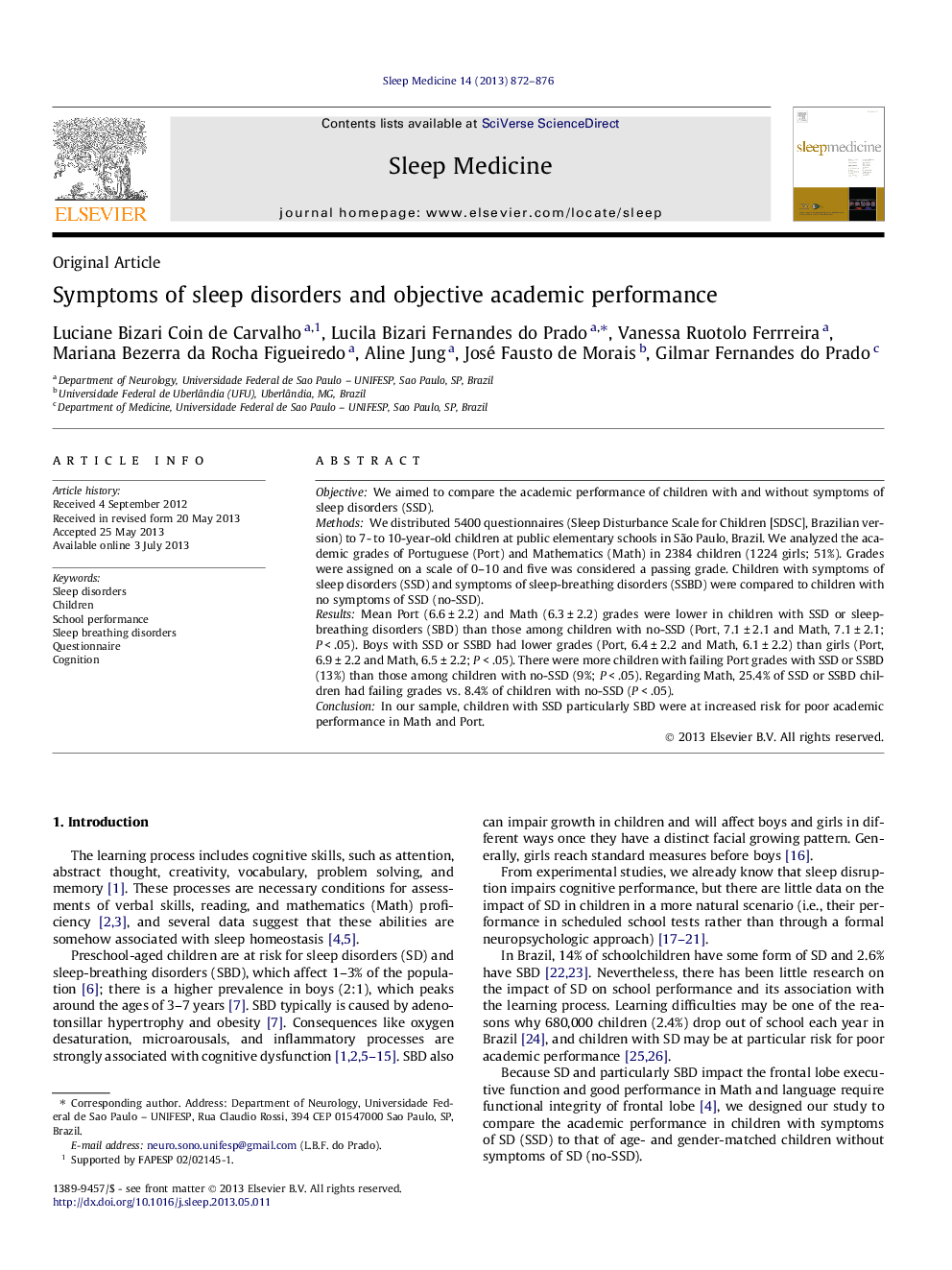| Article ID | Journal | Published Year | Pages | File Type |
|---|---|---|---|---|
| 3176350 | Sleep Medicine | 2013 | 5 Pages |
ObjectiveWe aimed to compare the academic performance of children with and without symptoms of sleep disorders (SSD).MethodsWe distributed 5400 questionnaires (Sleep Disturbance Scale for Children [SDSC], Brazilian version) to 7- to 10-year-old children at public elementary schools in São Paulo, Brazil. We analyzed the academic grades of Portuguese (Port) and Mathematics (Math) in 2384 children (1224 girls; 51%). Grades were assigned on a scale of 0–10 and five was considered a passing grade. Children with symptoms of sleep disorders (SSD) and symptoms of sleep-breathing disorders (SSBD) were compared to children with no symptoms of SSD (no-SSD).ResultsMean Port (6.6 ± 2.2) and Math (6.3 ± 2.2) grades were lower in children with SSD or sleep-breathing disorders (SBD) than those among children with no-SSD (Port, 7.1 ± 2.1 and Math, 7.1 ± 2.1; P < .05). Boys with SSD or SSBD had lower grades (Port, 6.4 ± 2.2 and Math, 6.1 ± 2.2) than girls (Port, 6.9 ± 2.2 and Math, 6.5 ± 2.2; P < .05). There were more children with failing Port grades with SSD or SSBD (13%) than those among children with no-SSD (9%; P < .05). Regarding Math, 25.4% of SSD or SSBD children had failing grades vs. 8.4% of children with no-SSD (P < .05).ConclusionIn our sample, children with SSD particularly SBD were at increased risk for poor academic performance in Math and Port.
